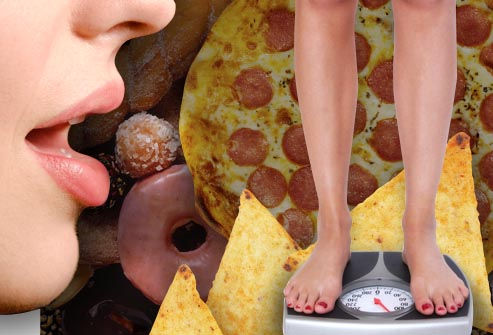How one ibogaine treatment can help you be free from Spice, ‘the zombie drug’.
- Admin

- Jul 4, 2018
- 4 min read
Few drugs have achieved such notoriety in so little time. A synthetic substance also know synthetic marijuana, synthetic weed, spice, herbal incense, herbal potpourri, K2, fake weed, synthetic pot, noids, synth and fweed – have gone from relative obscurity to being sold at newspaper stands, head shops, online stores and convenience stores all around the world and have since been banned in some parts of the world due to spiralling record number of abuse. No matter which location in the world spice comes in contact with, it brings along wrecking chaos that places huge pressures on emergency medical services with no signs of abating. In many places, vaping the liquid form of synthetic marijuana is a fast-rising trend, replacing smoking as it becomes the more potent form of spice consumption.
In 2015, when spice emerged from the shadows, new psychoactive substances were involved in 204 deaths in the UK, an increase of 25% from 163 deaths in 2014. But the tragic deaths tell only part of the story. Spice abuse and addiction is growing around the world. Along the way, tearing families and communities apart and not just the individual who uses it. The latest statistics from the 2017 world drug report shows deaths from synthetic drugs, of which spice is the most notorious, are on the rise, with growing users around the world from Europe to North America, Arab states of the Persian Gulf in the Middle East , and as far east into Japan. Synthetic marijuana without question is an exceptionally powerful stimulant with serious and often severe side effects because of its largely unknown composition of dangerous and unstable chemicals. At its best, spice side effects can cause feelings of extreme anxiety and paranoia and can include hallucinations. Some users report feeling changes in perception and say that spice leaves them relaxed, producing feelings of warmth and happiness. At its worst, people who are being admitted to hospital after using spice have reported the following symptoms:
Fast heart rate
Throwing up
Feeling anxious or nervous
Feeling confused
Violent behaviour
Suicidal thoughts
"Gouging out" / entering a state of oblivion for days
Feeling of alienation/disassociation from the world
Drastic behaviour change
Personality changes
Psychosis
Diminished cognitive functioning
Tremors or seizures
Brain damage
Death from overdose
Spice has the ability to cause intense cravings, and users must take more and more of it to get high and can cause chemical dependency. People who use spice may also face a range of withdrawal symptoms, including anxiety, irritability, nausea, and sleep disturbances. People who’ve taken spice exhibit often extreme agitation and paranoia. Most users of spice have also been regular users of other substances such as amphetamines and prescription medication are often addicted to more than one drug. So what can you do to help a person like that?
Convincing a spice user that they have a problem and getting them to accept their condition requires patience and a caring attitude. Spice users needs help, not punishment. A personalised approach catered to the specific needs of the individual in a caring and supportive environment is also often the best route to addiction recovery and achieving long-term abstinence.
Ibogaine therapy has shown that it is an effective addiction interrupter for most substances including spice, heroin, methamphetamine, cocaine, alcohol, and nicotine as it resets the dopamine reward circuitry in the brain. If we were to think of the brain as a computer hard drive, the ibogaine treatment will be the equivalent to a hard drive defragging program, defragging the hard drive and then resetting the computer.
Ibogaine works through the baggage of past traumas, learned behaviours and belief systems to address the underlying emotional cause of addiction.
Other reasons Ibogaine is so effective at helping a person overcome his/her addiction is the way it works on dopamine and serotonin levels in the brain. When you are dependent on drugs or alcohol, these “feel good” centers in the brain can become severely altered and create extreme imbalance in the mind and one’s emotional state. What Ibogaine does is to reset these neurotransmitters and thus helping the user regain the balance they’ve lost due to addiction.
The bottom line is : ibogaine treatment is no magic bullet that will take away your addiction for the rest of your life. If you come into a ibogaine treatment expecting this, your sobriety will be temporary. Ibogaine is a catalyst for change. Patients must be ready to put in the hard work and leave behind the friends and environment that enable their addiction. For many seeking help for spice abuse and/or dependence, he/she will require support and continuing therapy after a ibogaine treatment. This is known as aftercare, and is ideally maintained as a part of a persons life to enhance recovery and avoid a return to using spice. Aftercare may be in the form of:
Psychotherapy such as counseling or cognitive-behavioral therapy.
Contingency management (an incentive-based means of enhancing abstinence and recovery).
Sober living resources
Support group
Recovery takes on-going serious commitment, and seeking aftercare following ibogaine should be treated seriously. Any kind of addiction recovery, no matter what kind of treatment was received needs to be thought of as part of the process and something that is not overlooked. Going through the ibogaine treatment is just the start of your recovery process.
The critical golden rule for post ibogaine recovery is 1) to maintain sobriety from substance abuse, 2) understand your triggers and find ways to prevent relapse and lastly 3)work towards a life filled with rewarding relationships and a sense of purpose, 4) eat a healthy diet and engage in regular physical exercises.
If you or someone you care about is facing a spice addiction, please email us at info@ibogaine-thailand.net for a confidential treatment discussion.




